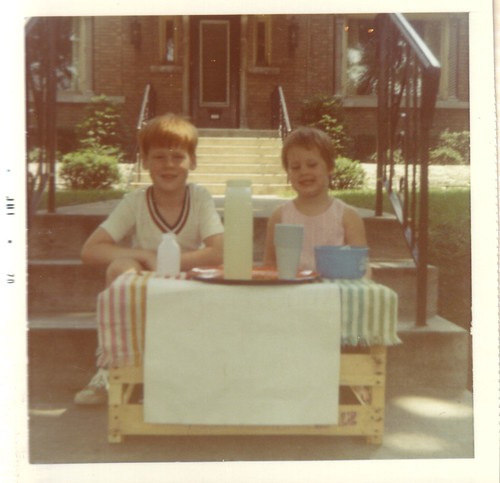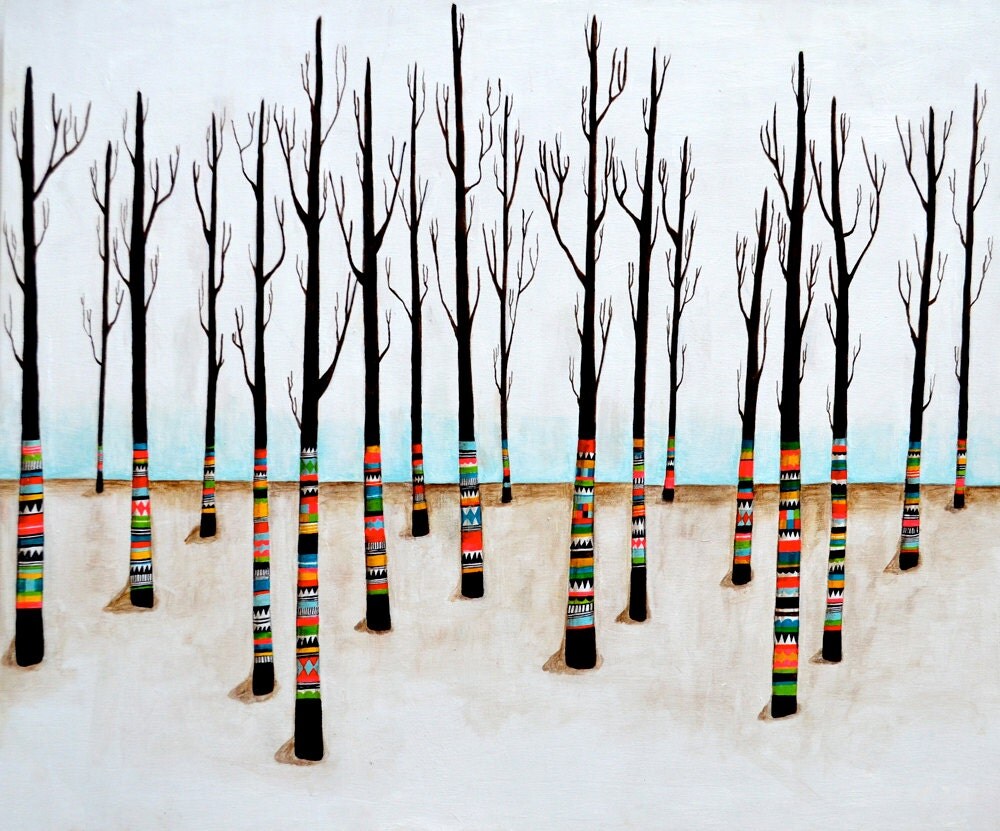Saturday, April 5, 2014
Wednesday, November 27, 2013
A recent favorite: Lisa Congdon
A few years ago, I bought two prints from 20x200 without knowing much about the artist.
Well, 20x200 shutdown (and is apparently soon coming back to life), and I re-discovered the artist, Lisa Congdon, through the blog, Brain Pickings.
She's way cooler than I knew back then.
Not only did she make the two prints I bought, but she's also worked on these two super cool projects (I've pasted a blurb about each project below).
The Reconstructionists:
"Every Monday in 2013, we'll be publishing an illustrated portrait of one such trailblazing woman, along with a hand-lettered quote that captures her spirit and a short micro-essay about her life and legacy.
The project borrows its title from Anaïs Nin, one of the 52 female icons, who wrote of “woman's role in the reconstruction of the world” in a poetic 1944 diary entry — a sentiment that encapsulates the heart of what this undertaking is about: women who have reconstructed, in ways big and small, famous and infamous, timeless and timely, our understanding of ourselves, the world, and our place in it."
A Collection A Day:
"I came up with a few ideas, but A Collection a Day resonated most. It would be a project that would span exactly one year, from January 1, 2010 to December 31, 2010. On each of those 365 days, I would post a photograph of one of my own collections or a drawing or painting of an imagined collection on a blog called A Collection a Day. I am an voracious collector and I wanted to share some of my collections with the world."
Here's her blog & some of her work below so you can become a fangirl (or fanboy) too!
Tuesday, October 15, 2013
Advertising Technique: The Witty Response
Last week, we held a Brand Workshop at Google Singapore. This is one of my favorite advertising examples from the 2 days...
Bodyform sells "lady products" (i.e., sanitary napkins). It's not the sexiest product on the market. Traditionally, they've advertised with ladies bike riding, ladies riding roller coasters, ladies swimming in ocean -- all during that "special" time of the month.
Well, Richard realized it was all a hoax. It's really not all that special. He even posted it on Bodyform's Facebook page, and 78K people "liked it."
Rather than write a generic response, Bodyform produced the video below in 8 days (which is incredibly fast in the advertising world).
It's really funny. And, increased sales by 260% during the 3 months after the video (yes, this needs to be fact checked -- I'm using my memory) and has 5.3M YouTube views to date.
Check out the video...
Monday, September 23, 2013
Teaching Kids to be Entrepreneurs
"A true bubble is when something is overvalued and intensely believed ... Education may be the only thing people still believe in in the United States. To question education is really dangerous. It is the absolute taboo. It's like telling the world there's no Santa Claus."
- Peter Thiel
 |
| Photopin |
Peter Thiel, co-founder of PayPal, started a program called the "Thiel Fellows," where he gives recipients $100K to NOT go to college and work on their business ideas for two years.
Likewise, Cameron Herold, in the TED talk above, discusses how the traditional school system does not nurture the characteristics that make a good entrepreneur.
Schools teach kids to follow, not lead.
Schools teach kids to memorize, not create.
Schools teach kids to follow a path, not set out on a new one.
 Essentially, schools teach kids to be good employees not good entrepreneurs. In fact, free public education was developed during the Industrial Revolution to ensure the subservient class could sit still and work for 8 to 10 hours a day.
Essentially, schools teach kids to be good employees not good entrepreneurs. In fact, free public education was developed during the Industrial Revolution to ensure the subservient class could sit still and work for 8 to 10 hours a day. Kids that can not focus (especially those that have been diagnosed with ADHD) often get left out of the traditional success ladder of academics -- i.e., doing well in class & on the SAT leads to getting into a good college; doing well in college with the right major leads to the right job.
But, what if we question this widely held belief system.
What if ADHD is natural?
What if we let kids explore the things they are really interested in?
What if it's actually more abnormal for kids to sit still and memorize obscure SAT vocabulary words than to show signs of boredom and unrest?
If I look back at my childhood, I showed a lot of the entrepreneurial traits mentioned by Cameron Herold, along with a wild imagination and a strong bent towards the arts.
Here's a few examples:
- After our neighborhood easter egg hunt, I decided to leave the other kids behind and sell my candy door-to-door. I was 6 years old, and thankfully, my parents stopped me after the first house.
- On family road trips, I'd laboriously draw cat pictures and then sell them in the hotel lobby when my parents were not looking.
- I had a stand at every neighborhood garage sale, selling beverages, food and handy crafts. I was a staple on Campstone street. When not in session, I'd sit for hours on the porch trying to sell my sticker collection and "kleenex ghosts"
- I'd have my dad photocopy fliers for my latest "childcare / pet sitting / random domestic help service" and then distribute in neighbors' doorhandles. By age 12, I was working 40 hours a week in the summer because no one could guess my age.
I was also pretty good at school. I was uncomfortably shy, so it was easier for me to do my schoolwork than talk with the other kids in class. I graduated high school and college with a 4.0 GPA and now work at a well-paying, stable job.
Overall, life has been pretty good to me. I've done relatively well climbing the academic ladder of success, but I do wonder what path I'd be on if school nurtured these other traits...
Friday, September 20, 2013
Is gathering the dots just as important as connecting them?
 |
| Sorensen Grundy |
We've all heard the phrase "connecting the dots" -- It even has it's own wikipedia entry.

But, what about the stage before connecting...
Gathering.
If we don't have enough dots, they won't ever connect into anything interesting or different.
In Anna Rascouet-Paz's creative mornings talk, she argues that it takes curiosity to collect the dots.
As a general rule, I'd say I'm pretty curious. I've travelled around the world, love to read and was even on a child-leash as a kid because I ran away so much (maybe a precursor to my adult life).
Regardless, I can still get into a thinking rut. Here's some of her tips on staying curious.
1. Aim for breadth over depth
Where did the Renaissance man go? How about the polymaths? For some reason, we've started honoring the specialist -- the person with focused knowledge. While that may be good for your dentist, it doesn't really produce creative thinkers. As Roman Krznaric suggests, maybe we should start seeking after breadth of knowledge vs depth.
"The bag's not for what I take, Colson -- it's for what I find along the way."
- Macgyver2. Curiosity is like a muscle. It needs to be exercised
It's not enough to be curious every once in awhile or on one particular topic. You need to apply it as a way of life -- why? what? how? should be the foundations of your vocabulary.
One tip that I like is to "take a different path home" from work. Our minds tend to "chunk" things together to speed up our processing power; therefore, we often miss the things our brains have become accustomed to seeing everyday. A new route means that you notice new things, like the man that works in the corner store or the flowers that bloom in your neighbor's windowsill.
3. It's okay to change your mind
I've been told that I've "changed so much since college," usually with a hint of criticism.
As my favorite philosopher says:
"Anyone who isn't embarrassed of who they were last year probably isn't learning enough."
- Alain de Botton4. Get out of your bubble
We tend to befriend people similar to us. In fact, one of the greatest predictors of who you will marry or become friends with is proximity (see this study from the University of Leipzig). If you work at the same place, live in the same neighborhood or sit next to each other at school, you likely have a lot of base commonalities and routine interactions, even if your interests or senses of humor may be different.
Likewise, social psychology proves that we are strongly attracted to look-a-likes. According to Byrne's "Law of Attraction," attraction towards a person is positively related to the proportion of similar traits associated with that person. On the other hand, cognitive dissonance is the discomfort experienced when holding two conflicting beliefs, which makes it difficult for people to befriend others that have very different attitudes and beliefs.
What does this mean?
The people you follow on twitter and interact with on Facebook are probably pretty similar to you. Find people that challenge you. That will debate with you. That can broaden your world view.
5. Travel
It's the easiest way to see the world through fresh eyes.
“Journeys are the midwives of thought. Few places are more conducive to internal conversations than a moving plane, ship or train. There is an almost quaint correlation between what is in front of our eyes and the thoughts we are able to have in our heads: large thoughts at times requiring large views, new thoughts new places. Introspective reflections which are liable to stall are helped along by the flow of the landscape. The mind may be reluctant to think properly when thinking is all it is supposed to do."
- Alain de Botton, The Art of Travel
Friday, August 16, 2013
Here is something false: You only live once
(Source: SMBC)
I LOVE the message in this comic. It just resurfaced on my twitter feed.
The person you were at age 18 does not need to be the same person you are at 25. You can continue to reinvent yourself -- to find new interests -- to change your mind.
This year, I've been really kicking my butt to try to find a creative outlet, learn new things & see what makes me happy. I'm on the verge of turning 30, and I am not: A) convinced I've found "it" yet (i.e., a passion, a calling, a career, whatever it is I'm searching for), B) ready to settle for something I'm just "okay at" or "not totally bored by."
Therefore, I've been trying a lot of things.
Monday, August 5, 2013
Book Review: The Pleasures & Sorrows of Work
I love Louis CK -- especially this bit above. He makes a valiant point that we've lost a sense of wonder for the miraculous things (i.e., flying and cell phones) that have become common place in our modern day world.
In a similar way, Alain de Botton explores some of the same mysteries in his book, The Pleasures and Sorrows of Work.
"We are now as imaginatively disconnected from the manufacture and distribution of our goods as we are practically in reach of them, a process of alienation which has stripped us of myriad of opportunities for wonder, gratitude and guilt." - Alain de Botton
Monday, July 29, 2013
An Incredible Couple: Charles & Ray Eames
(Source: Eames Exhibit, Art & Science Museum)
"Take your pleasure seriously" - The Eames
The Art & Science Museum currently has an awesome exhibit, "Essential Eames," which I visited over the weekend (the previous exhibit was also pretty amazing, The Art of Brick).
Charles & Ray were two pieces of the same puzzle -- meant for each other.
They loved each other.
They shared life together.
They created together.
I usually just associate chairs with Eames (we have several knock-offs around our apartment), but I learned this dynamic duo was so much more...
Friday, July 26, 2013
Inspiring: 180 websites in 180 days
I live in a bit of an alternate world where coding skills are valued more than sportz skills. At Google, engineers are treated like gods. The rest of us make money to enable those gods to make cool shit.
I'm okay with this.
I don't have any grand delusions that I'll one day become a Google engineer. That being said, I've been hemming and hawing the past 2+ years about learning basic programming. I even forfeited $600 for a Berkeley "Intro to Python class" that I never got around to (I did, however, start dating my "study buddy" for the class, Alan).
All that being said, I've been super inspired by this artist's self-learning journey.
I'm okay with this.
I don't have any grand delusions that I'll one day become a Google engineer. That being said, I've been hemming and hawing the past 2+ years about learning basic programming. I even forfeited $600 for a Berkeley "Intro to Python class" that I never got around to (I did, however, start dating my "study buddy" for the class, Alan).
All that being said, I've been super inspired by this artist's self-learning journey.
Subscribe to:
Comments (Atom)













